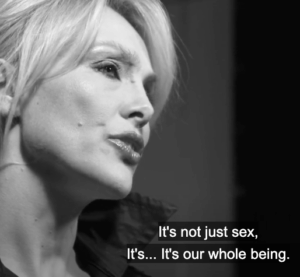Picture this: cold coffee, open spreadsheet, and me, trying to design a training program that actually helps people better understand themselves. My goal? Figure out what blocks us from listening, speaking up, or being taken seriously. So I went hunting for patterns in real stories. That’s when I noticed it. The issue wasn’t intelligence, or effort. It was status. You know, the invisible ladder we all climb, where some people are handed a microphone and others aren’t even given a chair.
So here’s a story (or five) about that. About the quiet power games we play — in our families, friend groups, offices, and yes, even supermarket queues. And why they matter more than we think.
When Confidence Overshadows Common Sense
Let’s start with Jane. Jane’s in a team meeting. The boss is all jazzed up about a new idea — a marketing campaign involving llamas and glitter (don’t ask). Jane, who has actual data showing this idea flopped last year, raises her hand. “Maybe we should look at the previous results before—”
She doesn’t finish the sentence. The boss talks over her. “Thanks, Jane. Great input. We’ll circle back.” (Spoiler: they won’t.)
Later, Jane’s colleague whispers, “I thought you made a good point.” Too late. The glitter llamas are already scheduled.
Another Case. Another Silence
Dinner with the in-laws. Your partner’s father starts explaining how women aren’t naturally good at handling money. You, who have literally worked in finance for ten years, consider jumping in. But your partner gives you That Look — the one that says not tonight.
You stay quiet. You seethe over dessert.
Or maybe it’s your child’s school. You notice your kid’s struggling, say something to the teacher, and get a tight smile: “He’s just a bit behind. Nothing to worry about.” Weeks later, it turns out your instinct was spot-on. But by then, things have escalated.
The Hidden Cost of Status Games
Here’s the thing: these aren’t just small social stumbles. They’re cracks in the foundation of how we connect, work, and make decisions.
When someone feels dismissed, they shut down. When someone feels unchallenged, they charge ahead, unchecked. When we prioritise hierarchy over honesty, we make room for disaster — even if that disaster is just another awkward Christmas with Uncle Clive mansplaining politics.
Why do we do this?
- Because we don’t want to seem difficult.
- Because we were taught not to question “authority.”
- Because speaking up feels like a risk, and staying silent feels… safer.
Except it’s not. Not really. It just delays the fallout.
How to Design Life Differently
So, how do we stop playing the status game on autopilot?
We start small:
- Ask, don’t assume. “What do you think?” is a magical sentence. Use it generously.
- Listen with your face. Nods. Eye contact. The whole shebang. It tells people they matter.
- Don’t wait to be perfect. Say the thing — even if it’s clumsy. Even if your voice wobbles.
- Notice your own defensiveness. Is it really about “respect,” or are you just uncomfortable being challenged?
Leadership — whether you’re leading a team, a household, or your cat into its carrier — isn’t about being right. It’s about staying open. To voices that don’t sound like yours. To truths that sting a little.
You know those moments when you walk away thinking, I should’ve said something? Or the ones where you think, Why didn’t they just listen to me?
That’s this. That’s the illusion of hierarchy, sneakily shaping your day.
We can’t smash every power structure. But we can start creating micro-moments of safety. Moments where honesty wins over ego. Where curiosity beats control.
Start by giving someone their microphone. Even if it’s just over dinner. Even if it’s just yourself in the mirror.
And if you’ve ever swallowed your truth to keep the peace — maybe today’s the day you let it out. Gently. Humorously. With love.
Because your voice counts. And someone, somewhere, needs to hear it.
Yours, Ksenia Trefilova




